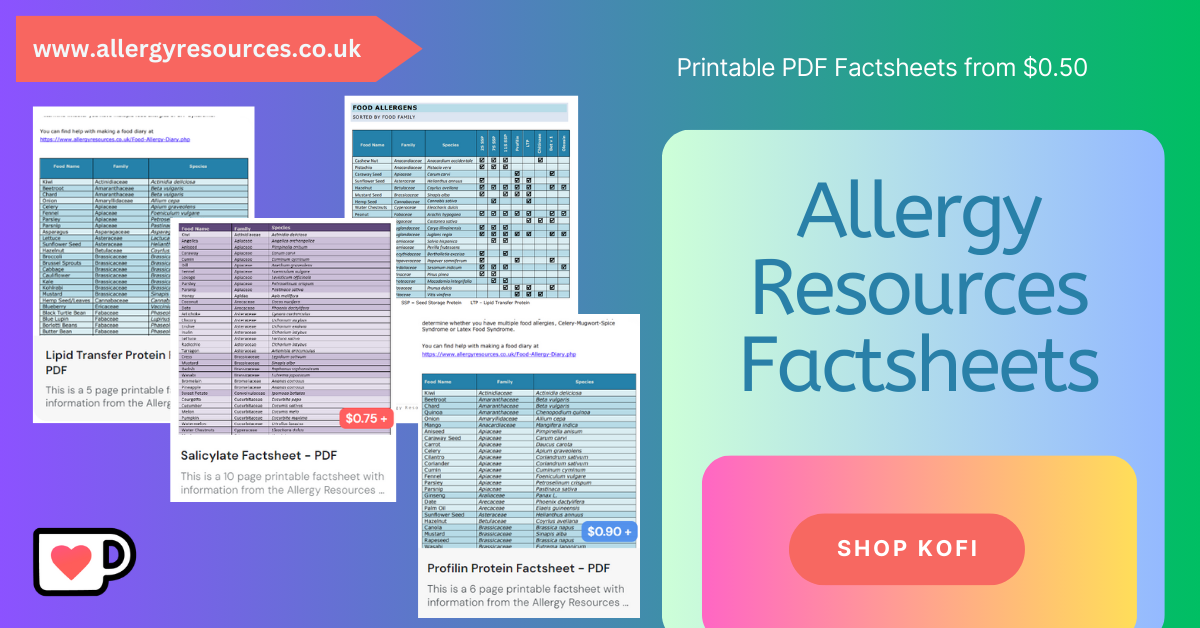
LILAC POLLEN ALLERGY
Key Allergens
There are 2 pollen allergens associated with lilac pollen, they are all allergens associated with airways.
Syr v 1 is a glycoprotein and is often referred to as "Ole e 1-like" as it closely resembles the main allergen in olive pollen. It has high cross-reactivity with the main allergens of other plants in the Oleaceae family.
Syr v 2 is a polcalcin protein, these are calcium binding proteins commonly associated with pollen germination. These proteins are highly cross reactive and also considered to be panallergens, meaning if allergic to one polcalcin protein you may be allergic to other trees and plants which contain the protein.
Lilacs are members of the Olive Tree family. Pollen season is between May and June. This varies from country to country. It is considered to have low allergenicity as they are insect pollinated rather than wind pollinated. It may be an issue if you have a lilac pollen allergy and have the flowers in the house.
Sensitisation to lilac pollen does not mean you should avoid eating olives or using olive oil, there is very little evidence that there is cross reactivity through food.
Syr v 1 is a glycoprotein and is often referred to as "Ole e 1-like" as it closely resembles the main allergen in olive pollen. It has high cross-reactivity with the main allergens of other plants in the Oleaceae family.
Syr v 2 is a polcalcin protein, these are calcium binding proteins commonly associated with pollen germination. These proteins are highly cross reactive and also considered to be panallergens, meaning if allergic to one polcalcin protein you may be allergic to other trees and plants which contain the protein.
Lilacs are members of the Olive Tree family. Pollen season is between May and June. This varies from country to country. It is considered to have low allergenicity as they are insect pollinated rather than wind pollinated. It may be an issue if you have a lilac pollen allergy and have the flowers in the house.
Sensitisation to lilac pollen does not mean you should avoid eating olives or using olive oil, there is very little evidence that there is cross reactivity through food.
Associated Syndromes
An allergy to lilac pollen is strongly associated with seasonal allergic rhinitis (hayfever).
A lilac pollen allergy is also linked to asthma, rhinoconjunctivitis and atopic dermatitis.
A lilac pollen allergy is also linked to asthma, rhinoconjunctivitis and atopic dermatitis.
Cross Reactivity
Other Ole e 1 like pollens include olive, pigweed, sugar beet, crocus, ash, privet, grasses, plantain and mesquite.
Other plant pollens which contain polcalcin proteins are ragweed, alder, birch, timothy grass, olive and mugwort. There is also a polcalcin protein in turnips which is associated with this allergy presenting itself as a food allergy.
Other plant pollens which contain polcalcin proteins are ragweed, alder, birch, timothy grass, olive and mugwort. There is also a polcalcin protein in turnips which is associated with this allergy presenting itself as a food allergy.
Resources
Websites
DermNet NZ - Pollen Food Allergy Syndrome
Allergy UK - Allergic rhinitis
Pollen Library - Genus/Syringa
Allergy UK - Managing your asthma and your allergic rhinitis throughout the seasons
Articles and Journals
How Do Pollen Allergens Sensitize? 2022
Tree pollen allergens—an update from a molecular perspective, 2015
Panallergens and their impact on the allergic patient, 2010
Let me know if you found any of these interesting or useful.
If you spot an article or research that you think is interesting you can message me or tag me on Facebook or Twitter - links at the bottom of the page.